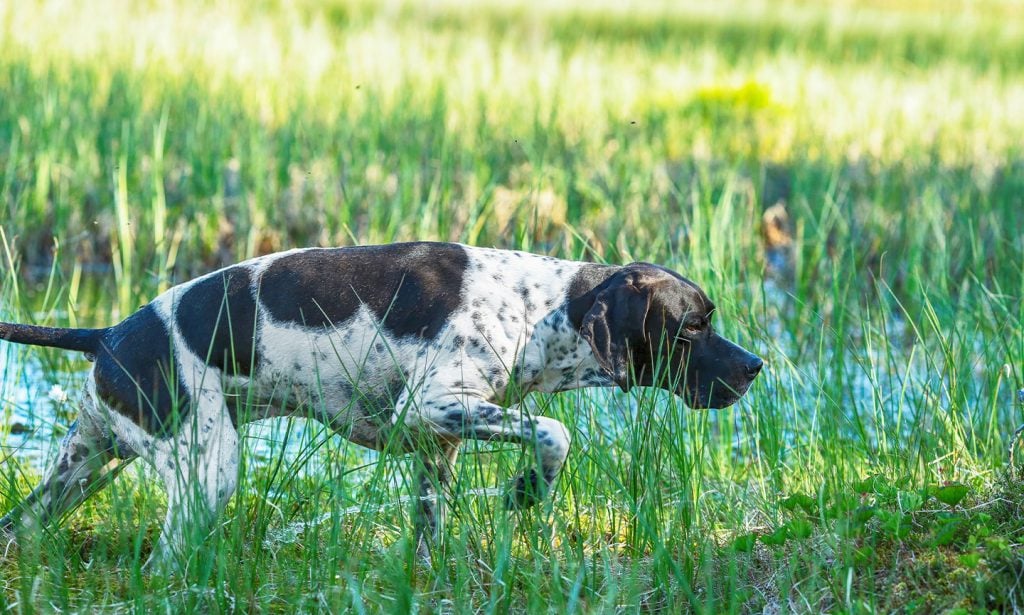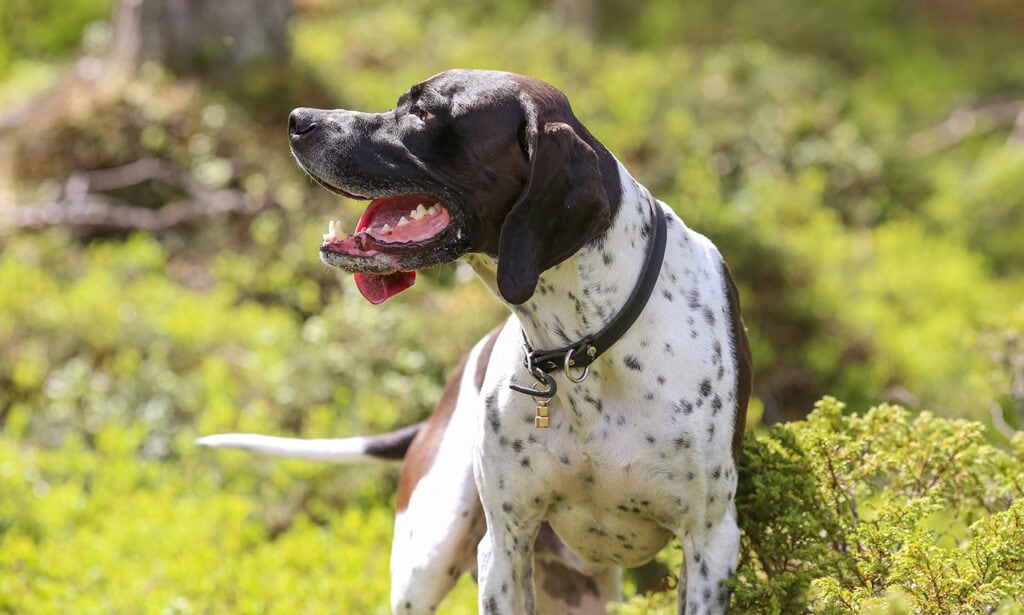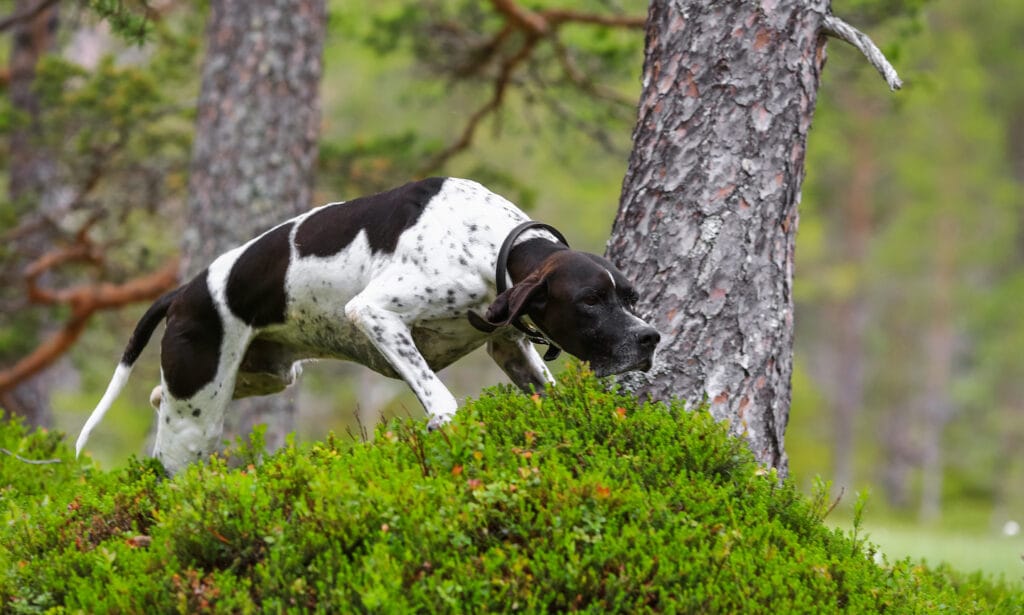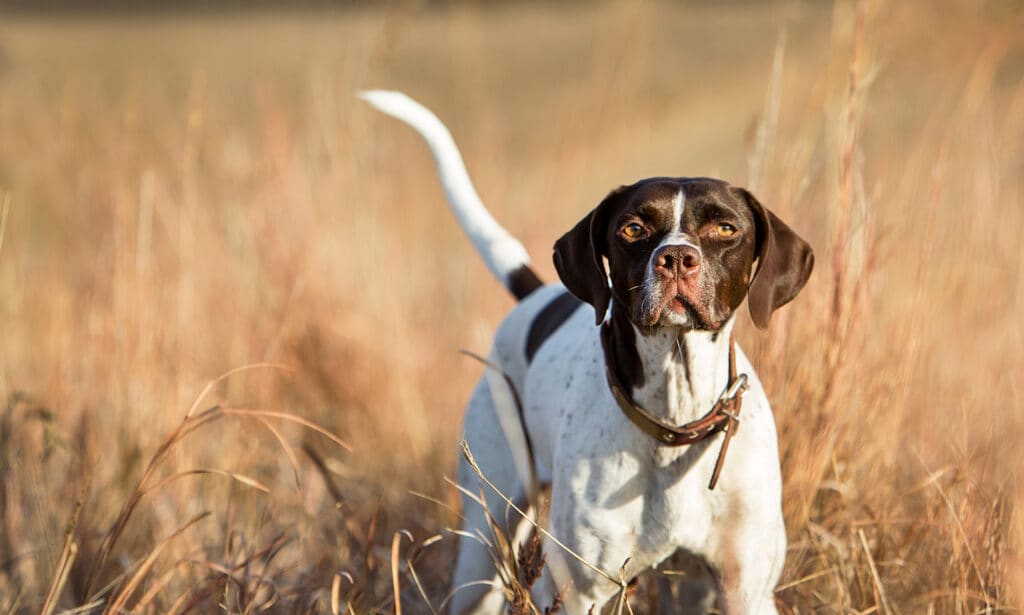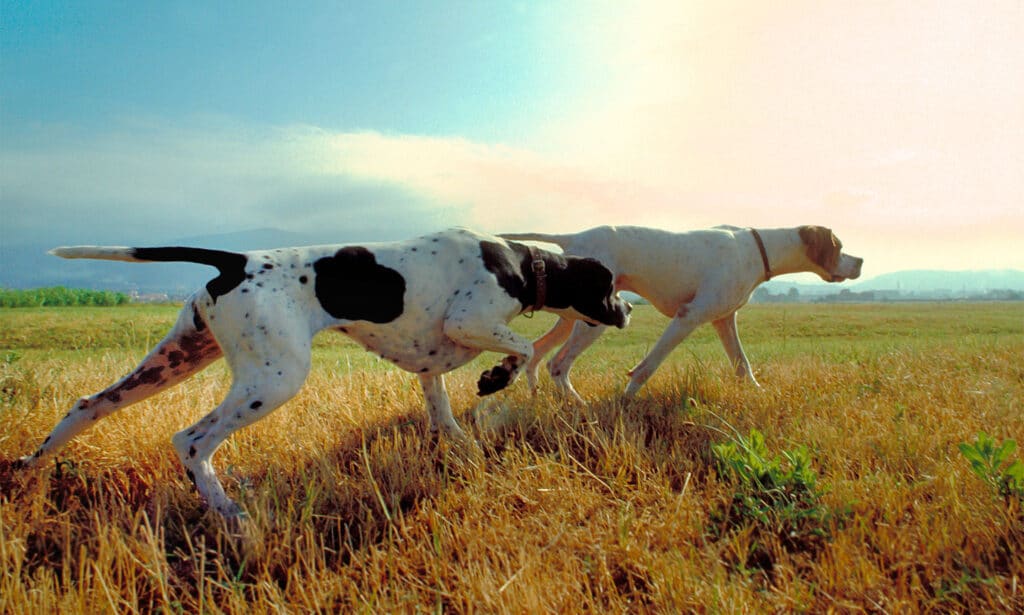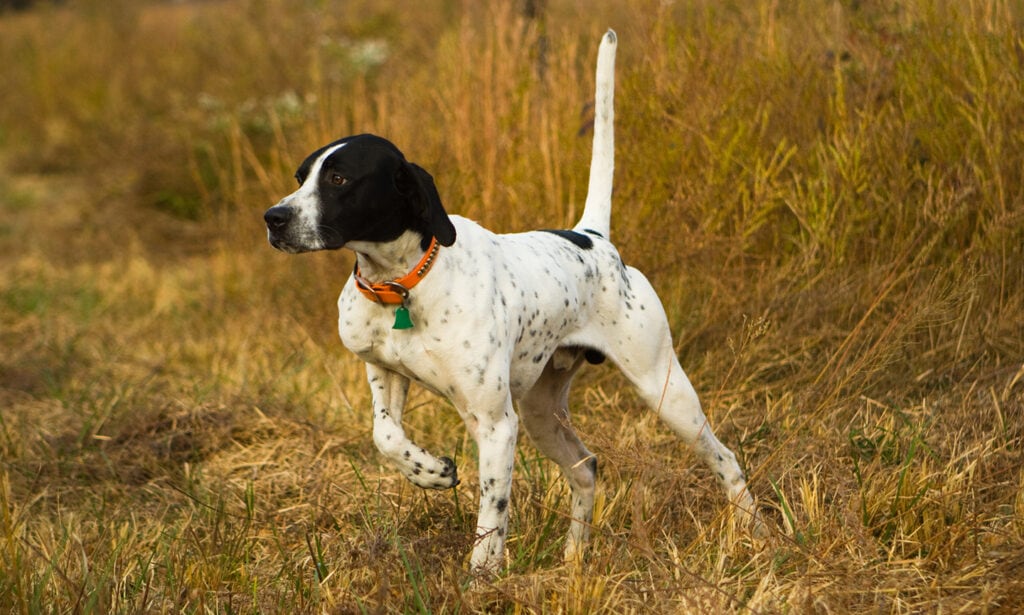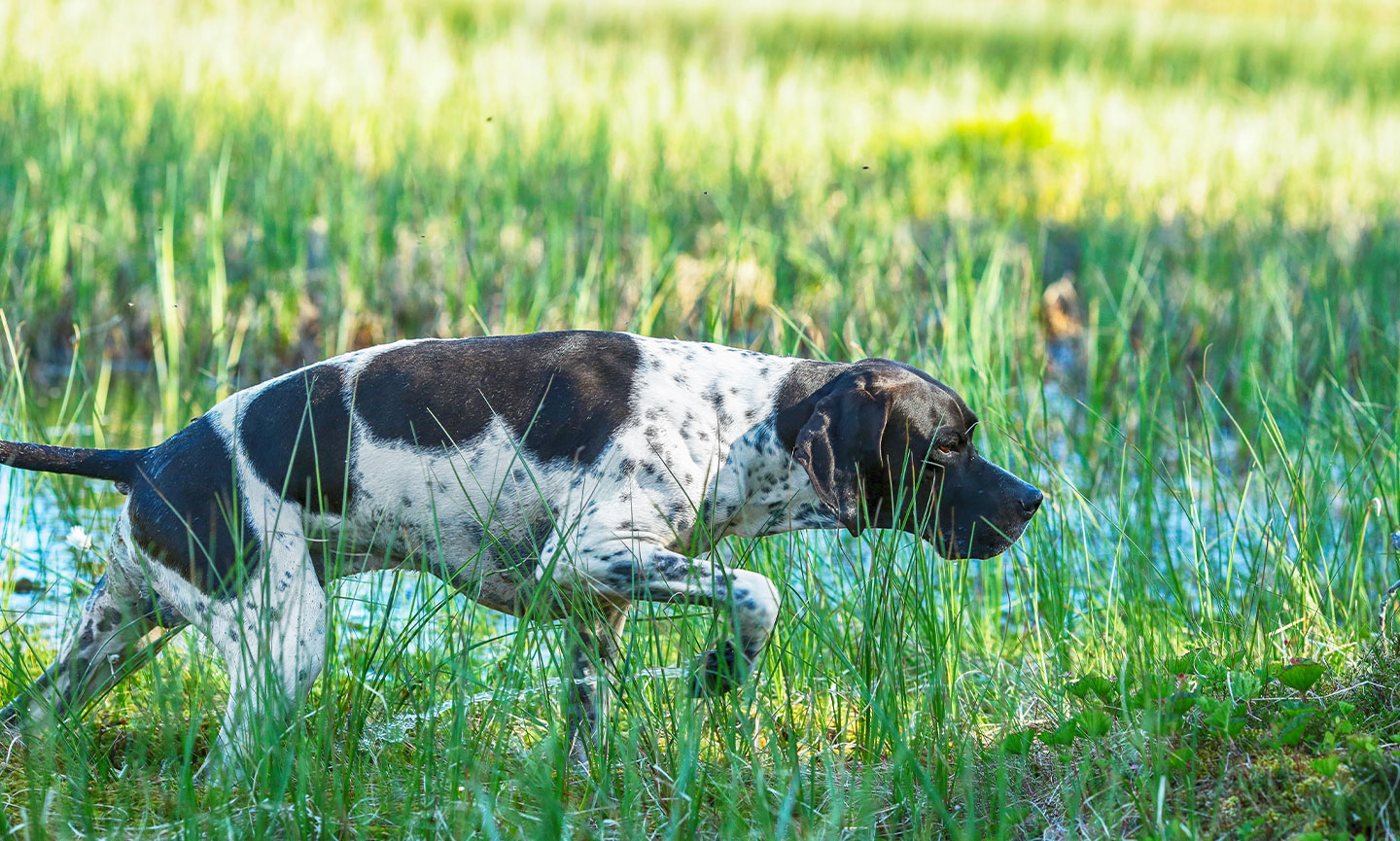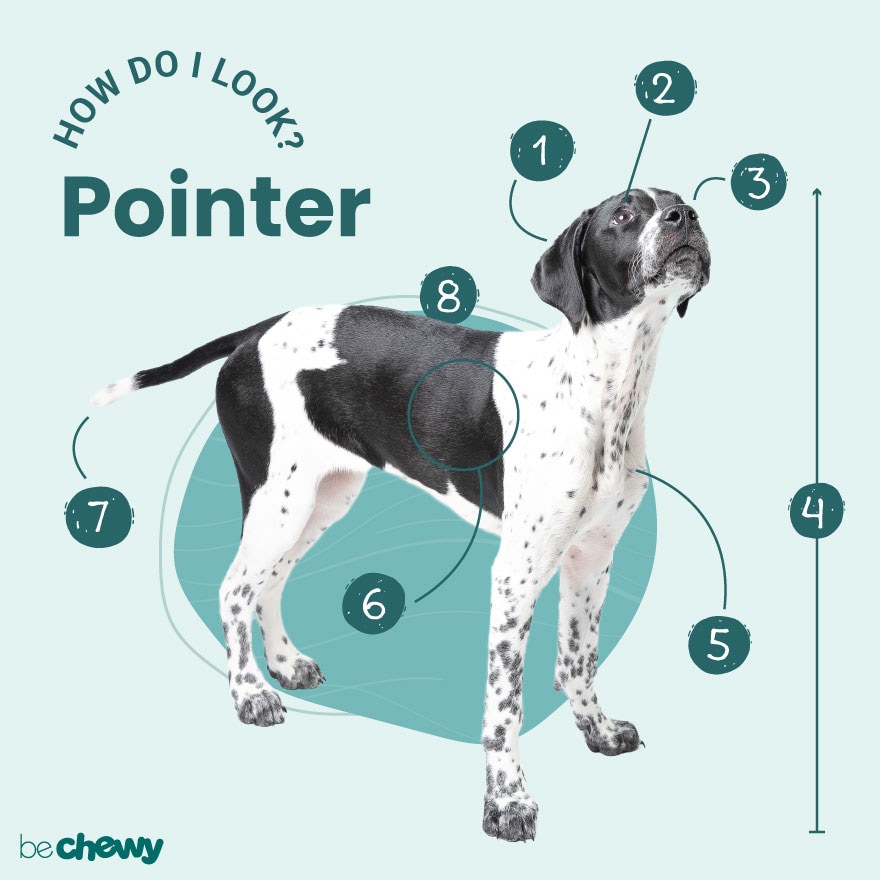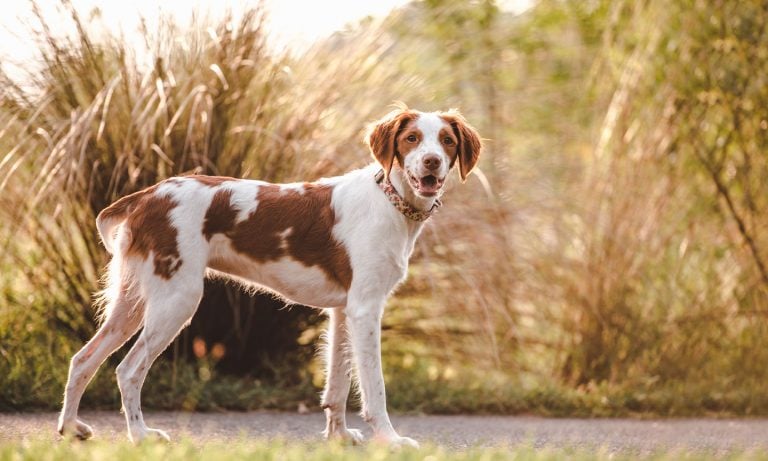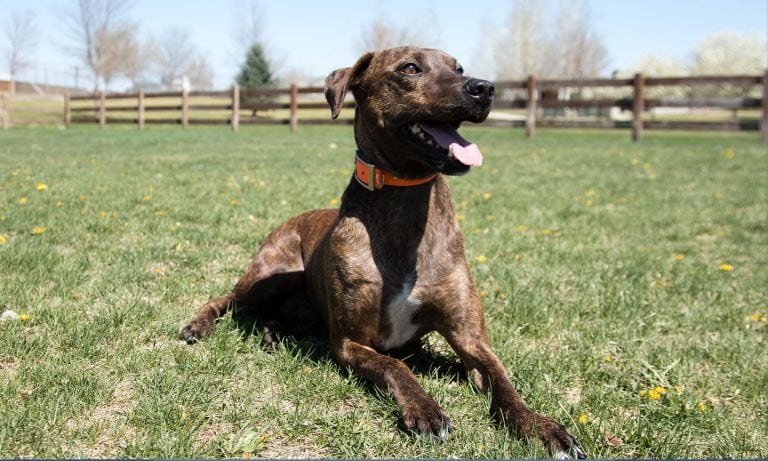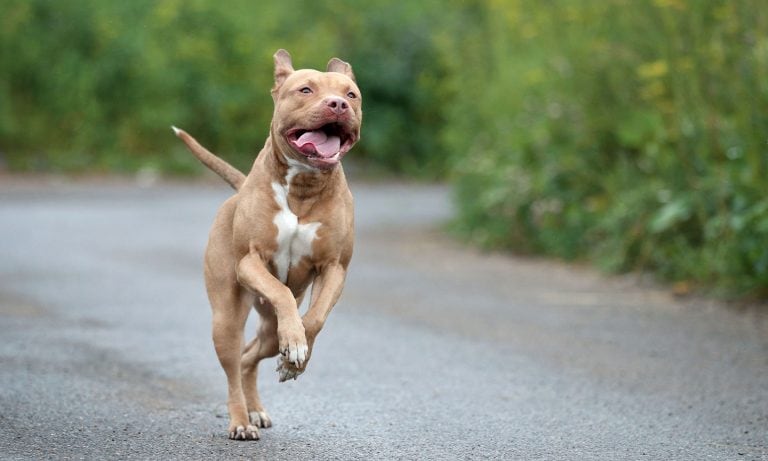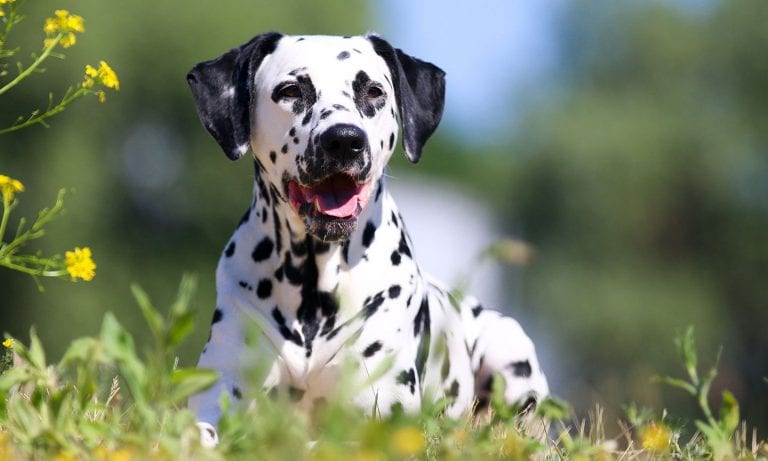Whether you’re a runner or a hunter, the Pointer would like to join in on all the fun you’re having, please and thank you. If you’re looking for a companion to adventure with you like there’s no tomorrow, a Pointer is Here. For. It. They might even invite a stranger or two to join you (these social butterflies live by the adage of the more the merrier!). And if you enjoy a good debate, Pointers, also known as English Pointers, are ready to share their opinions—maybe not vocally, but they sometimes can’t help but follow their nose in the opposite direction of where you were headed. And hey, you never know what new, fun experience you’ll encounter! Either way, it’s an adventure you and your new Pointer BFF will have together.
Breed Snapshot
Temperament:
IntelligentFun-LovingFull Of EnergyCoat Color:
LiverBlackOrangeLemonWhiteLiver And WhiteBlack And WhiteOrange And WhiteLemon And White
Best For
If the Pointer had a catchphrase, it'd be, "We're going on an adventure!" Intelligent and fun-loving, Pointers thrive in homes with singles, couples, families—you name it, as long as there's a lot of activity, you've got a happy Pointer pup.
Pointer Temperament
If you’re the type of traveler who loves an all-night party in Ibiza, chances are you and a Pointer will get along famously. While they might not share your concerns about the best party clothes to wear (just a simple collar will do for them, thanks), Pointer dogs do share your love for adventure and boundless energy. Intelligent and fun-loving, Pointers are confident, don’t take things personally (they’re OK that you think their dance moves might need some work), and enjoy the company of both people, including kids and babies and other dogs.
Pointers are not usually fearful or anxious in nature, so aggression and dog bites are typically uncommon as they are very friendly dogs—especially with proper training and socialization. And if your kiddos are driving you bananas and making you fantasize about your party days, scoot them outside with your Pointer—kids and doggo can wear each other out playing chase in the backyard, giving you some mental space to dream about booking a trip overseas.
Pointers can indeed live with cats, but they must be trained and socialized with cats or small critters starting at an early age to contend with their high prey drive. Pointers are hard workers who work through challenges and don’t give up on things easily, but sometimes what they work hard at is what they find to be most important in that moment, whether it’s chasing a squirrel, pulling you down the street or jumping to greet people at the door. Pointers were originally bred to point out prey (usually hares) for the hounds to chase down and retrieve. Even if they don’t find themselves with a hunting family, they need to work by using their nose, whether that’s through lots of exercise, nose work or other games.
How to Care for a Pointer
If you’d rather spend time playing than primping, you and the Pointer have something in common. Pointers have minimal grooming needs compared to other breeds. What’s more important is that Pointers have time and space to burn off their high energy running around or sniffing all the scents.
Pointer Health
Pointers are generally healthy dogs and have a life expectancy of 12-17 years, but pup parents need to be aware of some of their common health problems so they can help their dog live the healthiest life possible.
- Hip Dysplasia: This genetic disorder occurs when the ball and socket joint does not fit together and dislocates or rubs together. Over time, the joint deteriorates. Some dogs start to show signs of hip dysplasia as young as 4 months of age, while others develop it with osteoarthritis as they get older. A radiograph, or X-ray, from the vet will confirm the diagnosis; and treatment can include physical therapy, weight reduction or exercise, medication and sometimes surgery depending on the severity.
- Hypothyroidism: This endocrine condition is caused by the thyroid gland not producing enough thyroid hormone. Symptoms often include lethargy, weight gain and hair loss. Diagnosis is typically with a blood test and treatment.
- Bloat: Bloat (gastric dilatation-volvulus, or GDV) is common in larger dogs with wide chests and is a life-threatening, emergency condition. It occurs when a dog’s stomach fills with gas, food or fluid. The stomach then twists and flips, cutting off blood flow to organs. Symptoms often include abdominal distension, retching/dry heaving and restlessness. If you notice these signs, please see a vet immediately. Emergency surgery is typically needed.
- Cataracts: A common cause of blindness in older Pointers, cataracts cloud the dog’s vision. Some dogs adjust and live with the loss of vision while surgery to remove the cataracts may be an option.
- Deafness: Deafness can be hereditary in Pointers. Genetic screening testing is not available, but affected dogs should not be bred. Dogs with hearing impairments can do well and live full and happy lives.
Pointer History
The first Pointers appeared in England around 1650, hunting hares in tandem with Greyhounds. The Pointer found and pointed at the prey, then the hounds chased it down. With the rise of wing shooting in the 18th century, they became trained as bird dogs. Their hunting instincts tend to kick in around two months of age.
It is noted that Pointers are a very distractible dog, which doesn’t sound ideal for their purpose. But that’s actually what makes them amazing hunting dogs—they give up a smell to follow movement, then pick up that same smell until they find their target and point it out.
Pointers were one of the first breeds registered in America in 1878. When the American Kennel Club was founded in 1884, Pointers were one of the first nine breeds to be recognized by the organization.
Are you looking to add a Pointer puppy as a pet to your family? You can find a list of reputable breeders on the AKC’s website. It’s recommended to work with a reputable breeder because that usually means you’re getting a puppy who’s been screened for health issues and temperament. Depending on the breeder, a Pointer price can range $700-$1,000. Prospective pet parents can also adopt from Pointer rescue groups around the country, or you can keep your eye out for the breed at your local animal shelter. You can also search Chewy’s database of adoptable dogs in your area.
FAQs
Are Pointers hypoallergenic?
No, Pointers are not hypoallergenic, and they do shed.
Are Pointers good family dogs?
Yes, Pointers are good family dogs. This high-energy breed does best with older children, but can do well with young children if they grow up together.
What are the most popular Pointer dog names?
The most popular Pointer names are Dakota, Daphne, Gracie, Phoebe, Archie, Baxter, Finn and Sawyer. Get more dog names.
What are the most common Pointer dog mixes?
The most common Pointer mixes are:
- Pointer-Poodle (Pudelpointer)
- Pointer-Husky (Eurohound, Eurodog or Scandinavian hound)
- Pointer-Pit Bull (Pointer Pit)
- Pointer-Jack Russell Terrier (Pointer Jack Russell)
Note: These are not purebred dogs but mixed breeds.
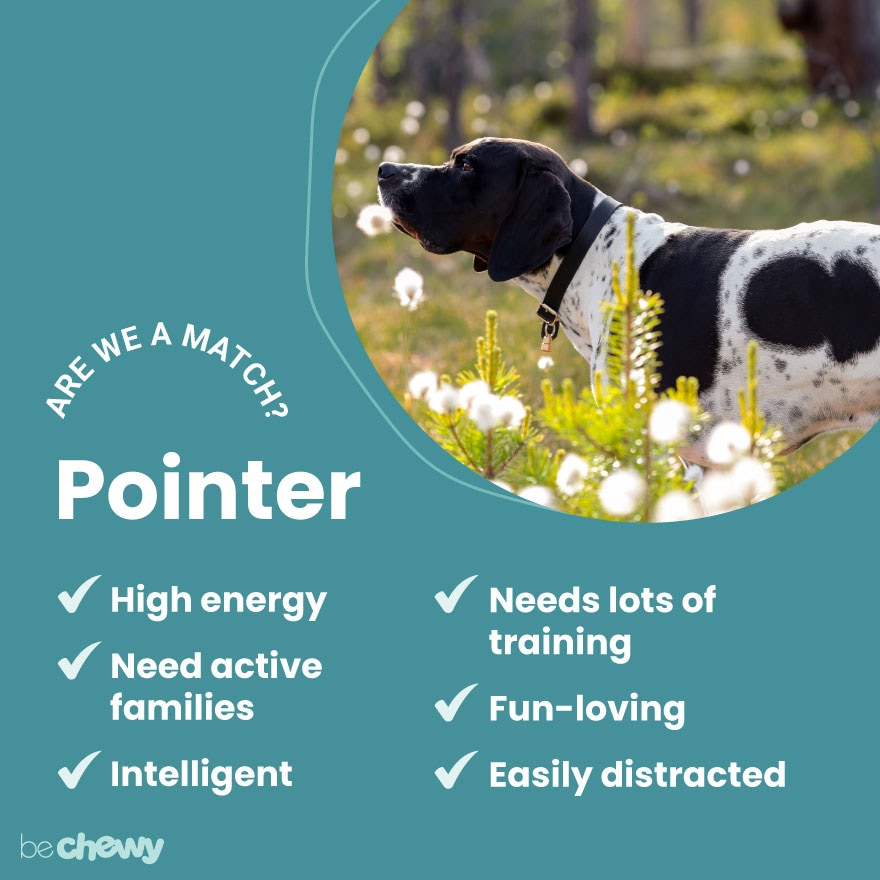
Top Takeaways
Raising a Pointer will bring a ton of fun and love into your life. While their exercise needs might sound daunting, an active, adventurous pet parent will no doubt love having this intelligent, happy-go-lucky dog at their side for any “work” or activity that needs doing.
Expert input provided by Dr. Mandy Boos, DVM, a veterinarian at Laurel Veterinary Clinic in Broomfield, Colorado; Mindy Jarvis, ABC-CPDT, CGC evaluator, and owner of Noble Beast Dog Training in Denver, Colorado; and Linda Aaron, CPDT-KA and owner of FetchMasters in Denver, Colorado.
Breed characteristic ratings provided by veterinarian Dr. Sarah J. Wooten, DVM, CVJ, a veterinarian at Sheep Draw Veterinary Hospital in Greeley, Colorado; dog trainer and behavior consultant Irith Bloom, CPDT-KSA, CBCC-KA, CDBC, owner of The Sophisticated Dog, LLC, in Los Angeles; and certified animal behavior consultant Amy Shojai, CABC, in Sherman, Texas.
The health content was medically reviewed by Chewy vets.

Search for Adoptable Pointers Near You
Female Names
- Luna
- Maggie
- Lucy
- Dixie
- Piper
- Daisy
- Pepper
- Sadie
- Bella
- Ruby
Male Names
- Cooper
- Jack
- Gunner
- Charlie
- Ace
- Rocky
- Ruger
- Moose
- Spot
- Theo
Share:
